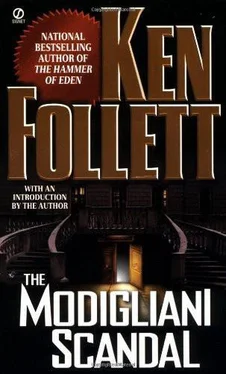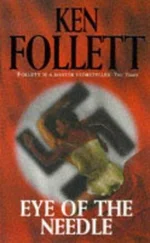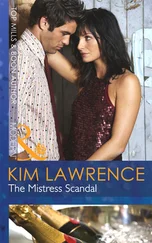″And for this you are asking how much?″
″One hundred and six thousand guineas. A fair price, I think.″
Schmidt grunted and leaned heavily on his crutch, gazing at the picture.
Claypole said: ″What do you think it′s worth?″
Schmidt said: ″About a hundred pounds. It′s the best forgery I′ve ever seen.″
Louis′s editor was a short, beak-nosed man with a Northern accent who was fond of the word ″bugger.″ He pulled at the end of his nose and said: ″So we know that all of the paintings were bought by the people who the anonymous caller said they were bought by. It seems likely that the prices he mentioned were right. We also know something he didn′t tell us: that they were all bought from a man calling himself Renalle who was staying at the Hilton. Finally, we know that at least one of the paintings is a forgery.″
Louis nodded. ″The caller also said something like: ′We will tell you why we did it.′ So it sounds as if the caller was in fact Renalle.″
The editor frowned. ″I think it′s a stunt,″ he said.
″That doesn′t alter the fact that a mammoth con had been put over on the London art fraternity.″
The editor looked up at Louis. ″Don′t worry. I′m not knocking the story,″ he said. He thought for a moment. ″All right, this is how we′ll do it.″ He turned to Eddie Mackintosh, the paper′s art critic. ″I want you to get hold of Disley at the National Gallery, or someone of equal standing. It has to be a body we can call Britain′s leading art expert. Get him to go around all these galleries with you and authenticate the pictures or declare them forgeries. Offer a consultancy fee if you think it′s wanted.
″Whatever you do, don′t tell these guys that their pictures are forgeries. If they find out they′ll have the police in. Once the Yard know about it, some hotshot crime man on a daily will get it and spoil it for us.
″Louis, I want you to go at it from the other end. You′ve got a story, whatever Eddie discovers—on major forgery is enough. Try and track down this Renalle. Find out which room he was in at the hotel, how many people were there, and so on. Okay.″
The tone was dismissive, and the two journalists left the editor′s office.
Louis gave the reception clerk £5 for a look at the hotel register. There was no Renalle listed for any day the previous week. He double-checked. The only peculiarity was a Mr. Eric Clapton. He pointed the name out to the clerk.
ʺYes, I remember. He had a beautiful French girl with him. Name something like Renault. I remember, because a taxi came with loads of heavy pictures for him. He was a good tipper, too.″
Louis made a note of the room number. ″When guests pay by check, do you keep a record of the bank the check is drawn on?″
″Yes.″
Louis gave him two more fivers. ″Can you get me the address of this Clapton′s bank?″
″Not immediately. Can you come back in half an hour?″
″I′ll ring you from my office.″
He walked back to the office to kill the half-hour. When he rang the hotel, the clerk had the answer.
″The check was overprinted with the names Hollows and Cox, and Mr. Hollows signed it,″ he added.
Louis took a taxi to the bank.
The manager told him: ″We never give the addresses of clients, I′m afraid.″
Louis argued: ″These clients have been involved in a major fraud. If you don′t give me the addresses now, youʹll have to give them to the police soon.″
″When and if the police ask for the addresses, they will get them—provided they have the authority to seize them.″
″Would it be compromising yourself to ring them? One of them? And ask their permission?ʺ
″Why should I?ʺ
″I am prepared to remember your help when I write my story. There′s no real necessity for the bank to appear in a bad light.ʺ
The manager looked thoughtful. After a minute he picked up the phone and dialed. Louis memorized the number.
ʺThereʹs no reply,″ the manager said.
Louis left. From a phone booth he got the operator to put him through to the local exchange for the number the manager had dialed. The local operator gave him the address. He took a taxi.
A station wagon loaded with luggage was parked in the drive. Mr. Hollows had just returned from a camping holiday in Scotland with his family. He was untying the ropes on the roof rack.
He was worried to find that someone had opened a bank account in his name. No, he had no idea what it could be about. Yes, he could lend Louis a photograph of himself, and he happened to have a snap of himself with his friend Mr. Cox.
Louis took the photographs back to the bank.
″Neither of those men is the man who opened the account,″ said the bank manager.
He was worried now. He telephoned Mr. Hollows, and got even more worried. He slipped so far as to tell Louis that a lot of money had passed in and out of the account. It had been converted to negotiable securities, which had been deposited in the bank′s safe.
He took Louis to the vault, and opened the safe deposit box Mr. Hollows had rented. It was empty.
Louis and the manager looked at each other. Louis said: ʺThe trail stops here.″
″Listen to this: ′Britain′s top art expert, Mr. Jonathan Rand, thinks the paintings are the work of the best art forger this century has seen.′ Is that you, Mitch, or me?″
Peter and Mitch were sitting in the studio of the Clapham house, drinking the second cup of coffee after breakfast. They had a copy each of the Sunday paper, and they were reading about themselves with a mixture of awe and glee.
Mitch said: ″These newspaper boys worked bloody fast, you know. They found out all about the bank account and the safe deposit box, and they interviewed poor Hollows.″
″Yes, but what about this: ʹThe forger covered his trail so well that Scotland Yard believe he must have had the help of an experienced criminal.′ I reckon I′m the brilliant forger and you′re the experienced criminal.ʺ
Mitch put the newspaper down and blew on his coffee to cool it. ″It just shows how easily it can be done—which is what we set out to prove.″
″Here′s a good bit: ʹThe forger′s masterstroke was to provide each painting with a provenance—which is the art world′s equivalent of a pedigree, and is normally thought to guarantee the authenticity of a work. The provenances were on the official paper of Meunier′s, the Paris artists′ agents, and had the company′s stamp. Both paper and stamp must have been stolen.′ I like that—the masterstroke.″ Peter folded his paper and threw it across the room.
Mitch reached out for Anne′s guitar and began to play a simple blues tune. Peter said: ″I hope Arnaz is laughing—he paid for the joke.″
″I don′t think he really believed we could pull it off.″
″Nor did I,″ Peter laughed.
Mitch put the guitar down suddenly, causing the soundbox to boom. ″We haven′t done the most important bit yet. Let′s get on with it.″
Peter swallowed the rest of his coffee and got up. The two put on their jackets, called goodbye to Anne, and went out.
They walked along the street and squeezed into the telephone booth on the comer.
″Something′s worrying me,″ said Peter as he picked up the phone.
″That bit about Scotland Yard?″
ʺRight.ʺ
ʺItʹs bothering me, too,″ said Mitch. ″They might be all set to trace our call to the newspaper. They could get down here to the kiosk, throw a cordon around the area, and question everyone until they found someone connected with art.″
″So what do we do?″
ʺLetʹs just phone another newspaper. Theyʹll all know about the story by now.″
ʺOkay.ʺ Peter lifted the directory from the rack and looked under D for Daily.
Читать дальше












